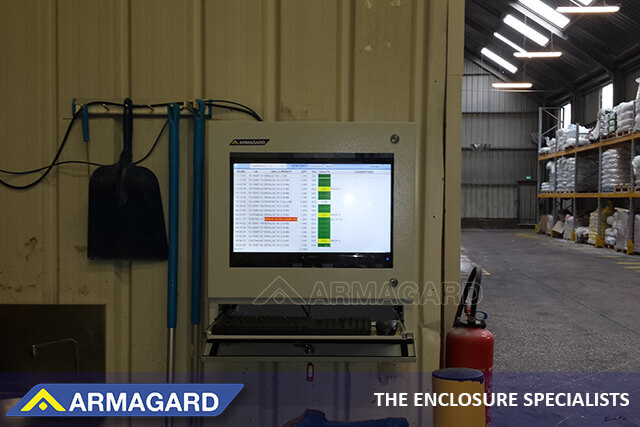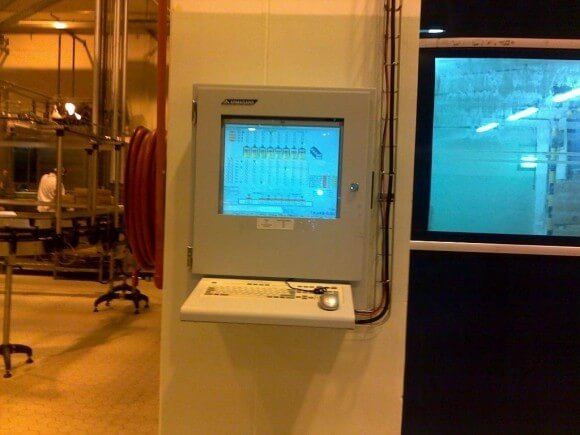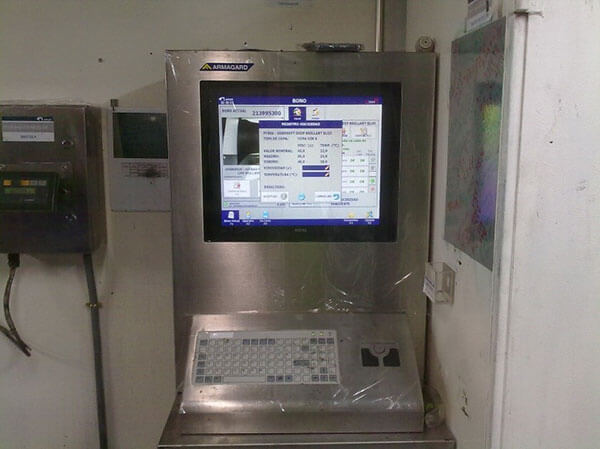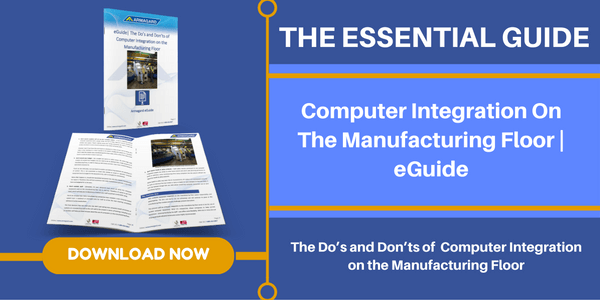5 Industrial Computing Myths Dispelled

Computers are costing jobs in industrial workplaces… Desktop computers can't be used in industrial settings... These are just two of the myths associated with industrial computing. In an age where computer use is crucial to the industrial sector, establishing fact from fiction will be pivotal when it comes to your industrial buying decisions...
Myth #1 - Industrial Computing is Costing Jobs
Automation divides opinion over the issue of jobs. Does it cost industrial workers their livelihoods or does it create new jobs? According to a study undertaken by economists at Deloitte, automation has 'generated more jobs than it has destroyed.'
Deloitte's conclusion is based on more than 140 years' worth of census data for England and Wales dating back to 1871 as they tracked the relationship between jobs and the rise of technology.
Deloitte's research, which was shortlisted for a Society of Business Economists' Rybczynski prize, found that the 'debate had been skewed towards the job-destroying effects of technological change, which are more easily observed than its creative aspects.'
Deloitte's argument can be applied to industrial computing. As industrial facilities become more automated, a need has arisen for highly-skilled workers that can operate computer-controlled systems. Equally, computer integration serves to upskill the current industrial workforce.

Myth #2 - Desktop Computers can't be used in Industrial Environments
To an extent, this is correct! If desktop computers used as part of an industrial process are not protected then yes, you absolutely can't use them in an industrial environment.
However, industrial computer enclosure technologies enable industrial facilities to utilize desktop PCs, monitors and printers for industrial processes, whether it's recording stock levels or managing shipping schedules.
Myth #3 - Industrial Computing is Expensive
Yes, there are industrial facilities that pay upwards of £385,000 for industrial computing systems. However, drawing your attention back to point two, industrial environments can establish a computer network on the shop floor by using equipment that's potentially already available to them.
Utilizing desktop equipment for industrial computing purposes not only saves you money in the short-term, it cuts costs in the long-term. The purchase price of PC towers and monitors for instance, is significantly lower than the fees charged to fix far more advanced industrial computing systems.
Myth #4 - Industrial Computing is High Maintenance
It can be, especially if computer systems are used in a hostile environment, unprotected. Computer hardware is susceptible to breakdown if used in an unorthodox setting, such as an industrial facility. The likely outcome of using computers in harsh facilities, minus protection, is regular incidents of downtime.
As a result, you will probably spend more time calling out an engineer to diagnose and repair malfunctioning computers as opposed to using them for the purpose that you intended. Keeping computers operational in tough environments remains one of the single biggest challenges for industrial facilities.
However, there has been a boom in the number of industrial PCs and computer enclosures available on the market that make industrial computing low-maintenance. For instance, various enclosure types exist to suit a variety of industrial settings such as stainless steel, powder coated steel and purged systems for use in potentially explosive environments.

Myth #5 - Industrial Computing Harms Productivity
This has been the subject of intense debate in recent years with conflicting research presenting evidence for and against the argument. A recent article published by the Japan Times argued that computer automation 'isn't a guarantee of improved production.'
That said, the research that the Japan Times is referring to is based on all industry sectors, not the industrial sector alone. Across industrial facilities, you would be hard pushed to find any that operate without a computer as part of their process.
Download The Do's And Don'ts Guide Of Manufacturing Floor Computer Integration
A survey carried out by Ebiz.net found that 69 per cent of respondents, working in an industrial setting, had seen an increase in productivity as a result of computerizing some or all processes, while enhancing the skillset of personnel.
If integrated correctly, and with the proper protection, industrial computers are a valuable asset to your industrial facility for a variety of uses. Improved data collection, reduced lead times and more accurate stock inventories and shipping logs are just some of the ways industrial computing can be utilized to advance your facility.






